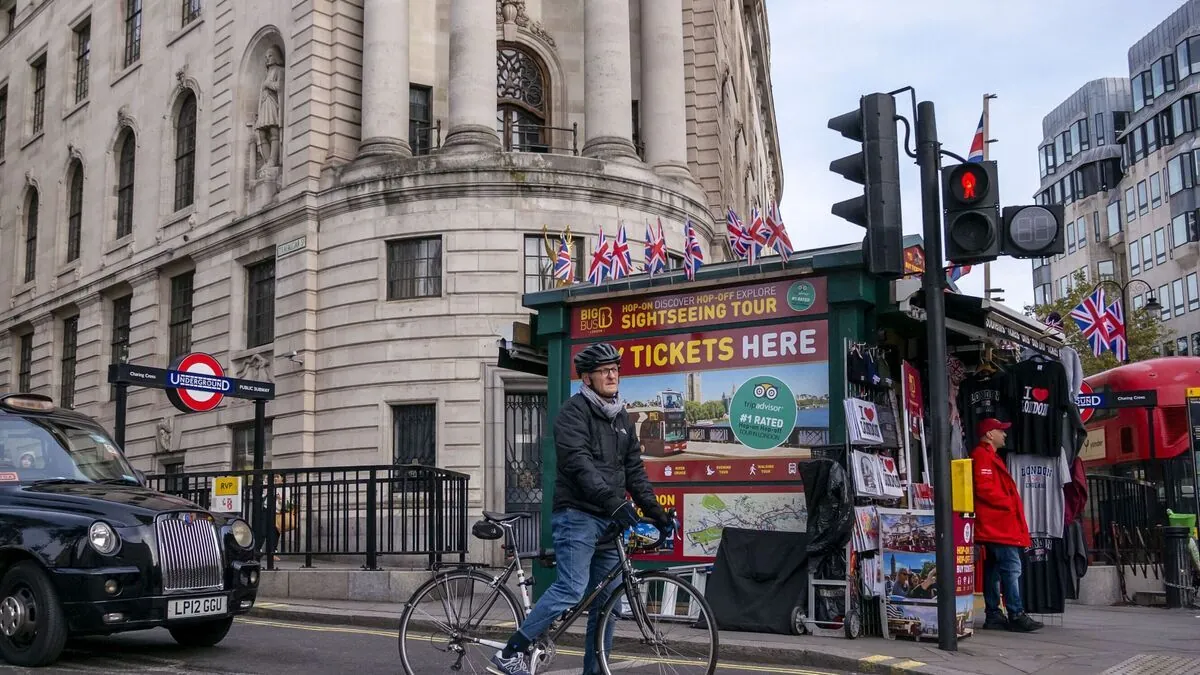UK Tests AI Traffic Lights Prioritizing Cyclists in Solihull
Innovative AI-controlled traffic lights prioritizing cyclists are being tested in Solihull, UK. The system aims to provide uninterrupted journeys for cyclists, potentially revolutionizing urban transportation.

In a groundbreaking move to enhance urban mobility, the UK is testing AI-controlled traffic lights that prioritize cyclists over motorists. This innovative system, installed at a toucan crossing in Solihull, West Midlands, marks a significant step towards creating smarter, more cyclist-friendly cities.
The AI-powered traffic management system, developed by VivaCity, utilizes advanced sensors capable of detecting cyclists up to 30 meters away. Upon detection, the system triggers a red light for motorists, ensuring a green light for cyclists and pedestrians by the time they reach the crossing. This technology aims to provide cyclists with smoother, uninterrupted journeys, potentially encouraging more people to choose bicycles as their preferred mode of transportation.

The trial is taking place on the A34 Stratford Road near Blythe Valley, where a cycle lane intersects a dual carriageway. This location is part of the A34, a 258-mile road stretching from Winchester to Manchester, highlighting the potential for widespread implementation if successful.
Mark Nicholson, CEO of VivaCity, explained the technology's capabilities: "It uses a video camera on board a sensor. AI is able to identify what it sees, but without any personal information, for example, a cyclist 20 metres away, a pedestrian 10 metres away." This non-invasive approach allows for intelligent traffic management without compromising privacy.
The implementation of this system aligns with the UK government's plans to invest significantly in cycling and walking infrastructure. Louise Haigh, the Transport Secretary, has emphasized the importance of promoting safe cycle routes to reduce the burden on the NHS. In fact, studies suggest that if cycling rates doubled, the NHS could save an estimated £17 billion over 20 years.
Sarah McMonagle of Cycling UK, one of the world's oldest cycling organizations founded in 1878, praised the initiative: "The traffic light trial is a clear and positive step in the right direction. We can encourage more people to make shorter journeys by foot or bike."
Richard Parker, Labour Mayor of the West Midlands, underscored the project's significance for road safety and encouraging active travel. The West Midlands region, home to over 2.9 million inhabitants, stands to benefit significantly from such innovations.
Despite these efforts, current cycling rates in England remain low. Department for Transport figures from 2023 show that cycling accounts for only 2% of trips and 1% of distance traveled on average. However, with the average bicycle trip in the UK being about 3 miles, there's significant potential for growth.
The implementation of AI in traffic management is not entirely new. The first AI traffic light system was introduced in Pittsburgh, USA, in 2012. Since then, AI has shown the ability to process traffic data 1,000 times faster than traditional systems, potentially reducing travel time by up to 25% and emissions by 20%.
As cities strive to become more intelligent, this trial in Solihull represents a crucial step towards realizing the "smart city" concept that has been evolving since the 1990s. By prioritizing cyclists and pedestrians, these AI-controlled traffic lights could play a vital role in creating more sustainable, efficient, and healthy urban environments.
"Cities need to get more intelligent. The 'smart city' notion has been kicking around for decades but is coming true because the technology is able to make these intelligent decisions without getting into personal data."
With the UK government aiming to double cycling trips by 2025, innovations like these AI traffic lights could be instrumental in achieving this goal. As cycling produces zero direct emissions and can help reduce urban air pollution by up to 10%, the potential benefits extend far beyond traffic management, promising cleaner air and healthier communities for future generations.


































